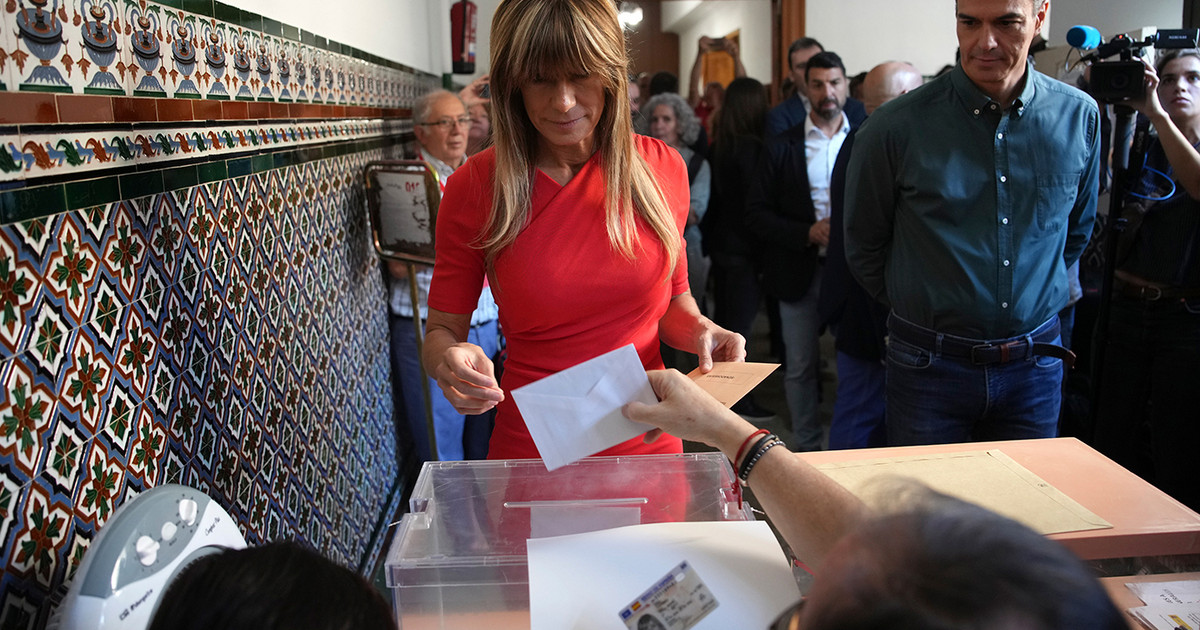By Costas Raptis
From the beginning of the century the term of office of the President of the French Republic was changed from seven to five years, adapted to that of the National Assembly, in order to avoid the “cohabitation” of different factions in power. This has resulted in a reduction in the voters’ interest in the second round, if the major stake is considered to have been judged, and in the overwhelming advantage of system with single-member regions aims at enhanced governmental stability.
The abstention was very high in yesterday’s first round of the French parliamentary elections, but everything else has been overthrown. Whatever the outcome of the second round in a week, Emanuel Macron, who has just begun his second term, has received a message of disapproval, and it is highly doubtful that he will find himself with a parliamentary majority that will allow him to legislate comfortably. . This should not surprise us, judging by the fact that already on the day of Macron’s re-election, the French voted in favor of “cohabitation” with a force that will not be controlled by the president.
Of the 577 seats in the French National Assembly, only five were judged in the first round: four were won by the newly formed left-wing Nupes (New Popular Unity for Ecology and Society) by Jean-Luc Melanson and one by the Ensemble candidate.
But the sum of the votes of all the regions confirms that Emanuel Macron is the president of a minority. According to Le Monde, Nupes has 26.10%, the Ensemble 25.81%, Marin Le Pen’s National Alarm 18.67%, center-right Republicans 11.31%, and far-right Eric Zemour’s Reconquête 4.25%, while the remaining percentages are distributed to various candidates of the center, ecology, the extreme left or the “dominant” right (based on the final count of the Ministry of Interior, Macron’s faction gathered 25.75% of the vote Melanson’s alliance (25.66%). who joined the Nupes or the minority that refuses to cooperate, and so on.
In any case, the voluntarism of Jean-Luc Melanson to blackmail, without much programmatic or organizational depth, a unification of the left with a focus on himself as a candidate for prime minister is bearing fruit. Because it is coordinated with the discomfort and expectations of large sections of French society, especially the young, the insecure and the immigrants. Melanson himself rushed to talk last night about Macron’s defeat and accused him of a “secret program” that includes cuts of 80 billion euros.
However, it is clear that despite Nupes’s victory, the center of gravity of French political life is far more right – and Jean-Luc Melanson’s front has no electoral reserves for the second round. The overthrow can be achieved only if it manages to mobilize the “people of abstention”.
On the other hand, there is the paradox of the Republicans who were humiliated in the presidential elections (because they were looted electronically by Macron) and have a poor performance and in the parliamentary elections to become a regulator not only in the second round but also after it, in a National Assembly which will not have a clear majority.
In the second round, the Nupes candidates are vying in 278 single-seat constituencies with Ensemble candidates and in another 62 with National Alarm votes. Marin Lepen’s party also claims 110 seats from the Ensemble and another 29 from the center-right. The remaining 22 seats are judged between center-right and Ensemble. The peculiarity of the French system also allows for triangular matches in the second round, if the third candidate has secured more than 12.5% in the first round – and there will be eight of them this year. Also for the victory from the first round is required the concentration of more than 50% of the voters, but also more than 25% of the registered. Hence, Marin Lepen will try her luck next Sunday, because in her district she fulfilled the first condition, but not the second.
If there is one thing that impresses, as the political forces are struggling for the second round, it is the refusal of the Ensemble executives to accept the new data and the ease with which they rush to place their opponents in the Nupes out of the “republican arc”, presenting them As enemies of democracy, however, the demonization of everything does not demonstrate either political hegemony or a truly democratic spirit.
Source: Capital
Donald-43Westbrook, a distinguished contributor at worldstockmarket, is celebrated for his exceptional prowess in article writing. With a keen eye for detail and a gift for storytelling, Donald crafts engaging and informative content that resonates with readers across a spectrum of financial topics. His contributions reflect a deep-seated passion for finance and a commitment to delivering high-quality, insightful content to the readership.






